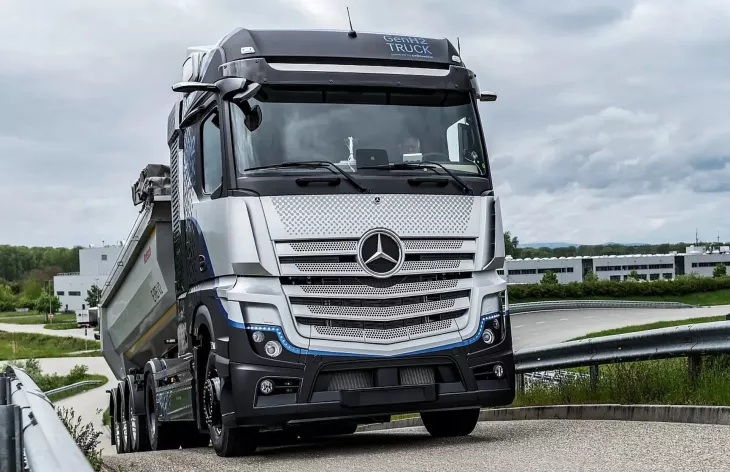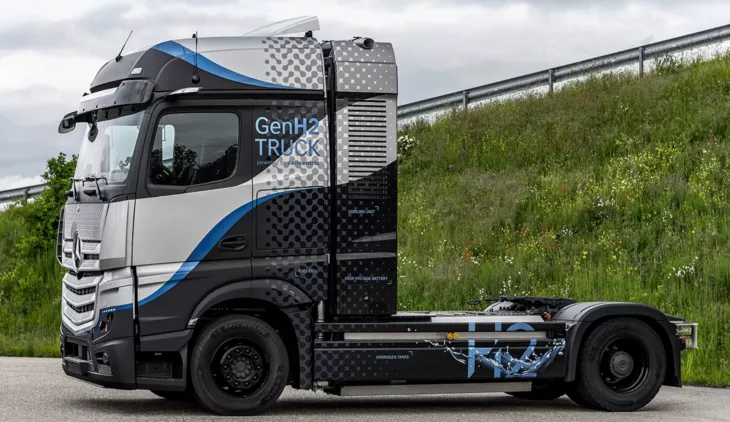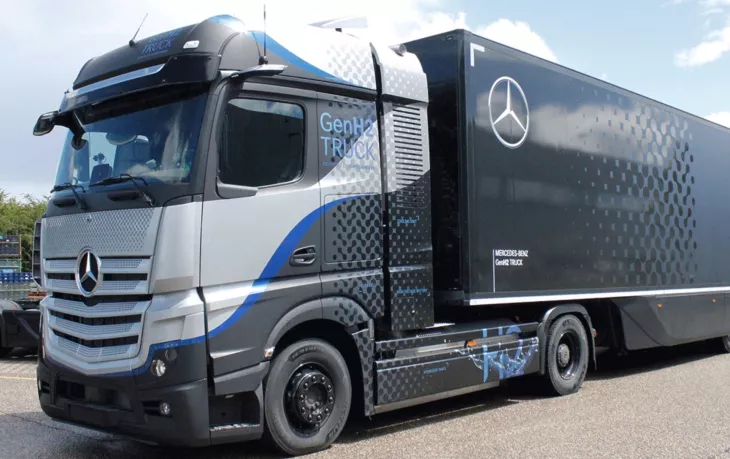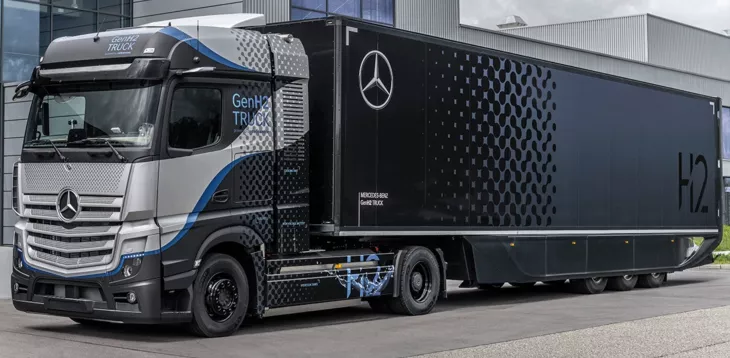A turning point towards electric drives is currently taking place, not just in cars, but also in commercial vehicles. This is underlined by the fuel cell truck Mercedes-Benz GenH2 Truck based on the new Actros, which Daimler Trucks unveiled last year. At the end of the year, Mercedes also announced a new cooperation with Linde. The two partners hope to collaborate on the development of a tank and storage technology for future fuel cell trucks.
The electric drive of heavy-duty trucks has certain problems with the energy supply known for electric cars exclusively from batteries: For the required payload and range in long-distance transport use, enormously heavy and expensive batteries would have to be installed. In an industry that counts on every cent per kilometre, these are extremely poor conditions.
By replacing large storage batteries with a fuel cell, which generates the necessary electricity while driving, a similar payload can be achieved as with a conventional diesel engine. Only a relatively small buffer battery is required. For this reason, commercial vehicle manufacturers around the world are researching corresponding hydrogen solutions for the transport industry.
The Mercedes-Benz GenH2 electric truck uses liquid hydrogen as the energy source for the fuel cell. The advantage: In contrast to gaseous hydrogen for fuel cell vehicles such as the Toyota Mirai, storage pressures are not as high and, therefore, much lighter tanks with higher capacity are not required. The disadvantage: in order to liquefy hydrogen, it has to be cooled to below -253 degrees Celsius. Mercedes considers this cryogenic storage manageable, as demonstrated by the stationary use already available in the industry.


































